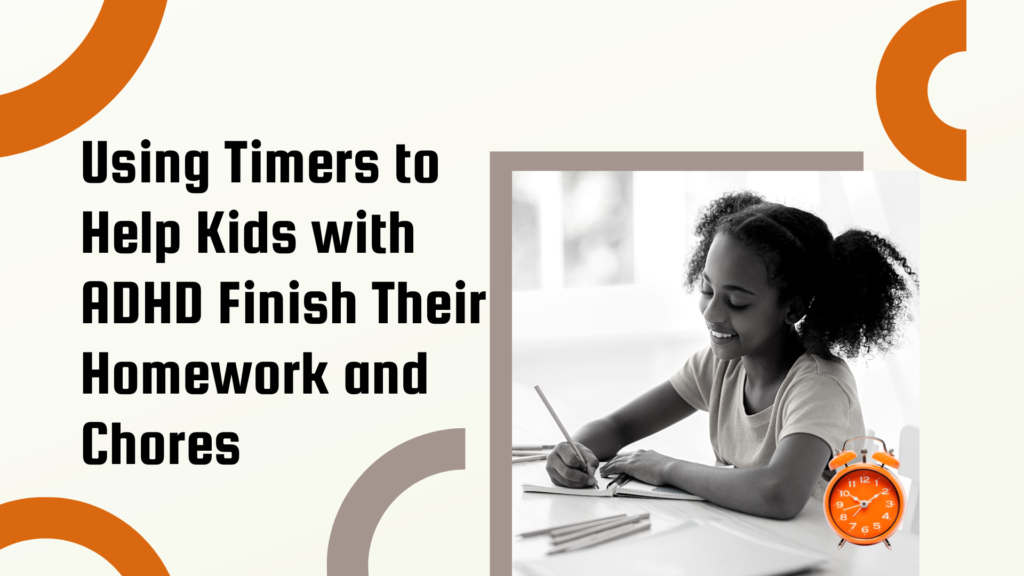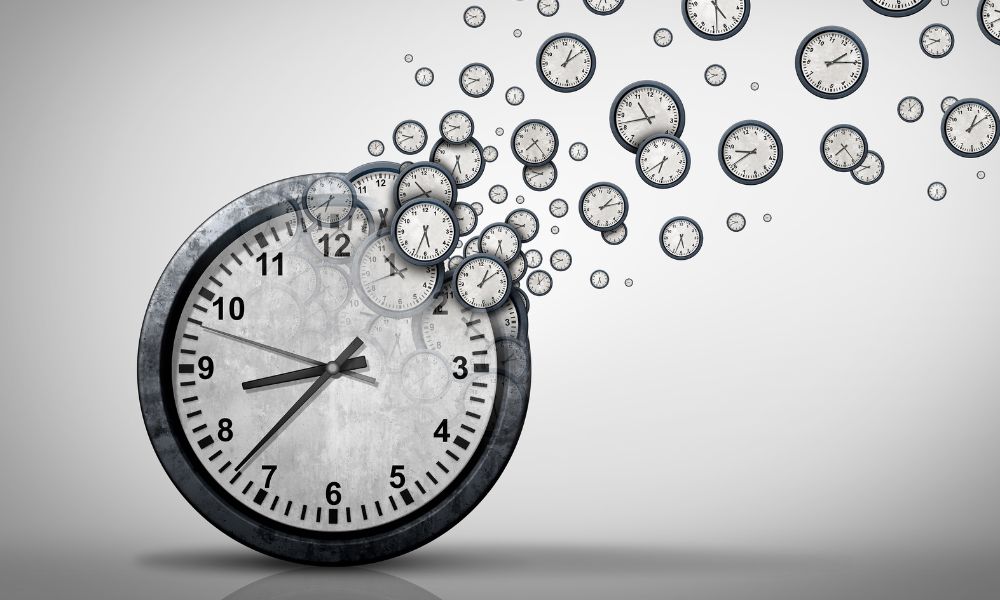
14 Sep Helping Kids with ADHD Finish Their Homework and Chores
Using Timers to Help Kids with ADHD Finish Their Homework and Chores
Are you frustrated and irritated because your ADHD child is not finishing their homework?
That is not their fault!
ADHD kids struggle hard to complete their homework and other chores. ADHD is real, and so is their struggle. However, putting in some effort and deriving some unique and workable strategies to make your child work can help you both.
Why do children with ADHD not complete their homework and chores?
Because they lack executive functions – time management, social skills, self-control, flexible thinking, and working memory, to name a few. They need executive functioning coaching – be it professional or parental.
Therefore, we have created this article to help parents of ADHD children finish their homework and chores with timers. This will provide you with the best timer techniques and other to-do’s to help your child complete their tasks without struggle.
How Timers can Change the Life of your ADHD Child – A Case Study.
Before taking you to the ‘know-how’ of the topic, let’s first take a look at how timers have changed the life of individuals with ADHD.
Sarah Oberg, who has ADHD, struggled to do simple tasks like washing her hands and dishes. She feels fog in her brain, and time seems to flow slowly. Completing household chores with all this in her head was impossible.
Therefore, she experimented with different strategies. And after much trial and error, she discovered that adding a sense of urgency triggers her mind to produce chemicals that help her complete tasks from start to end.
She sets a timer for three minutes and races the clock to complete a particular task. For instance, she starts with loading and unloading dishes. Furthermore, she decided to improve and took the time interval less than required to create little pressure.
Note – Some ADHD children perform better under pressure, while others do not. Adding additional stress can elicit unwanted anxiety in some individuals.
However, this strategy helped Sarah break down large mundane tasks into smaller timed pieces. For example, it has made cleaning the house become more manageable for her.
She says the more she learns about her brain, the easier her life becomes!
Credits – The Mighty.
Understand how ADHD Child Perceives Time
A child with ADHD is too much in the present and cannot see into the future. They do not know how fast time is passing. It may be 30 minutes for you, but an ADHD child perceives it as 15 minutes or 10.
‘By the time you feel it, it’s too late’ – Russell Barkley, Ph.D.
If a child with ADHD is playing with Legos, then they are only playing with Legos without thinking how long they have been playing or how much time is left – they are in the moment. Meanwhile, if you ask them to get dressed and come for dinner – after 5 minutes, you will see the child is still playing with Legos. But that is not their fault. Do not get frustrated. An ADHD child stays in one window. They struggle to understand time and switch to other tasks.
How to Help Your ADHD Child Complete Homework and Chores on Time?
My ADHD child perceives time differently!
But now what?
Can they complete their chores on time?
YES, if you are committed to making them work without getting frustrated and losing your temper.
Time management is a practical skill that helps ADHD children to understand task structure – the deadline of one task, their next task, etc.
- Timers are the best way to help ADHD children manage their time. Timers have become the proven solution to get ADHD children aware of the time.
- Timers leave a positive impact on ADHD children.
- Timers increase engagement rates among ADHD children.
- Timers promote self-reliance in ADHD children.
- Timers help ADHD children reduce the effort and time in transitioning from one task to another.
Using Timers to Help Kids with ADHD Finish Their Homework and Chores
Many strategies help ADHD children complete their homework and chores using timers. The two smart ways of using timers:
1. Pomodoro technique
Francesco Cirillo created the Pomodoro technique in the 1980s to help people manage their time. It focuses on aggressively working on one task for some time then taking a short break. This framework promotes productivity and concentration. The working structure:
- Assign a task to your child and set a 25-minute timer. Ask your child to work on the task until the timer goes off.
- When the timer goes off, give your child a five-minute break and offer rewards (such as a snack).
- After four 25-minute sessions, set it for a break of 15-20 minutes.
2. Timer Blast
This strategy allows flexibility in the time intervals. Remember, not every child can concentrate for 25 minutes in one go. Therefore, parents have the flexibility to choose the timers like 5 min, 10 min, 15 min, 20 min or so, and give them a 5 min break. The working structure:
- Assign a task to your child and set a decided interval timer. Then, ask your child to work on the job until the timer goes off.
- When the timer goes off, give your child a break and offer rewards like a favorite cookie or cute gift. Then, repeat the same and stop when your child feels exhausted.
What To Do During Breaks?
A child with ADHD struggles to relax and reset. Therefore, what you do during breaks is crucial. They may be frustrated while doing one task for a longer time or switching between them. Therefore, you must use the breaks to let their mind relax.
➡ Movement breaks
Study shows that kids learn faster after exercise or body movement. The primary goal of the break is to shift the child’s focus. So if they were sitting for a while, make them do some body movement or walk to facilitate an increased blood flow to the brain. Different types of movement breaks include:
- Stretching
- Walking
- Running
- Yoga activities
- Cross crawls
- Frog hops
➡ Quiet brain breaks
Not every child needs movement breaks. Some children want to be quiet after focusing for a while. And for the kids who need silent breaks, sitting quietly can be the best brain break. A quiet brain break includes-
- Sitting quietly for some time
- Breathing activities
- Guided meditation
- Slow garden walk
How to Choose the Correct Timers for Your Child?
The kind of timers you use plays an important role. Therefore, always use a timer that suits your child. The two most commonly used timers are:
- Visual timers
It makes your child more aware of the time. Also, they will know how much time they have spent and how much is left. These come up with different colors and styles to create awareness among ADHD children of how much time is left.
- Timer Apps
Innovative timer apps are available for smartphone users. Developers have added different elements to get your child aware of the time. Bar graphs, line charts, and other fun stuff are added to those apps to help ADHD children perceive time.
Other essential elements included in the timer strategy:
Maintaining a healthy environment around your child is essential to keep him excited and focused on the tasks. The ADHD mind wanders a lot; therefore, try keeping things that elevate their willingness to hunker down and complete it.
- Keep a ‘Done-box’
It is crucial to keep up your child’s enthusiasm throughout the process. Keeping a ‘done-box’ on the table and putting in slips of completed tasks will keep your child excited and motivated. And due to the excitement and enthusiasm, chemicals are released in the brain, which will help them to complete their homework and other chores.
- Prepare a ‘progress chart.’
Pin the progress chart on a cork board. It will help children visualize how far they have come and how long they still need to go. It will also help ADHD children self-regulate when completing homework and other chores.
Multiply the Results: A Word from Themba tutors.
Parenting an ADHD child comes with its own unique challenges and fulfillment. Making ADHD children value and recognize time is one of the things that parents must pay attention to. However, timers are great visualization tools that help your child complete homework and other household chores. If you are still facing problems in making your child complete tasks, you can seek the help of professionals like Themba tutors. Our executive functioning coaches, tutors, and learning specialists are highly qualified and experienced in helping children with ADHD succeed at school and at home. We can help your ADHD child to manage time and complete their homework. In addition, coaching your ADHD child for executive functions is the best step you can take to make their future bright. You can reach out to us anytime for counseling and coaching!
Check Out Our Blogs:
⏩ Helping Children With ADHD Finish Their Homework
⏩ How to Get Students With ADHD to Turn in Their Homework?
⏩ 4 Tips To End Homework Battles for Children with ADHD
—————————————
Do you need help with your child with ADHD to finish homework and chores?
Chat with Themba Tutors Today! Our ADHD tutors travel to your home.
We travel to the following locations: Manhattan, Brooklyn, Queens, Staten Island, Bronx, Long Island (Nassau & Suffolk Counties), Westchester County, Connecticut (CT),and New Jersey (NJ).
Have a free consultation today.
Call: (917) 382-8641, Text: (833) 565-2370
Email: [email protected]
(We respond to email right away!)
References:
https://study.com/blog/using-timers-to-help-kids-with-adhd-finish-their-homework-and-chores.html
https://www.adhdcentre.co.uk/5-effective-procrastination-busters-for-children-with-adhd/
https://www.timetimer.com/blogs/news/time-blasts-a-genius-adhd-time-management-method-for-kids-and-adults
Craig Selinger
Latest posts by Craig Selinger (see all)
- Psychotherapy and Support Services at Cope With School NYC - April 12, 2024
- NYC Parents of Teens Support Group - April 8, 2024
- Here I Am, I Am Me: An Illustrated Guide to Mental Health - April 4, 2024





No Comments